The Zero Covid-19 policy with strict lockdowns applied during the 3 years of the pandemic, although lifted by China from December 2022, its impacts are still clearly felt in the labor and employment market.
 |
| A university degree is no longer a guarantee for new Chinese graduates to find a good job. (Source: EPA-EFE) |
After searching for more than 50 positions on various job portals, Connie Xu (22 years old) finally got an opportunity to interview for an internship at a company in a major city in China.
Having just graduated in June with a degree in Chinese Language and Literature with honors, Xu is confident that she will be a strong candidate for the position, especially with the many soft skills and classroom experience she has gained from her university projects.
Entering the interview with confidence and the expectation of landing a good job soon, Connie Xu was quickly disappointed when she was rejected.
“The company judged me as still too immature. According to the person who interviewed me, I was like a blank sheet of paper without any real work experience,” Xu sadly shared.
In the near future, Xu said she believes that people without internship experience will continue to be the first to be eliminated early in the application process. She noted that even many of her friends with excellent grades have not found jobs.
Stuck due to lack of experience
Xu's case is quite common and she is not alone in the struggle to find jobs among the 11.58 million new graduates entering China's labor market this year.
The unemployment rate for young workers in this country (aged 16 to 24) continued to increase in May and reached an all-time high of 20.8%, up from 20.4% in April this year.
The Zero Covid-19 policy with strict lockdowns applied during the 3 years of the pandemic, although lifted by Beijing from December 2022, the impacts of this policy are still clearly felt in the labor and employment market.
Most college graduates in the class of 2023 face a difficult time as they struggle to convince employers of their ability to handle real-world jobs.
“We have been stuck on campus for three years in four years of university, so where will we get the experience? Companies are all cutting jobs so if they are hiring, they are hiring people who can take on multiple roles,” Xu lamented.
Normally, the job-hunting process of Chinese undergraduates will begin in the fall semester of their final year, when large companies organize recruitment campaigns at universities and colleges with the aim of supplementing human resources for the business.
The following spring hiring period, which typically runs from March to May, will fill any remaining vacancies, but there are often fewer places for graduates. Even those who do find jobs—often with the help of their universities—may not find the best fit.
Mo Haonan, a civil engineering student in Hangzhou, lamented that although he found an internship opportunity through a recruitment campaign organized by the university, after a short time, he was rejected for official employment after assisting with a few company projects.
“Companies often use us as a source of low-cost labor. After completing a project, they fail to find customers and fire us without much compensation,” said Mo Haonan.
The paradox of training and the market
Miriam Wickertsheim, a Shanghai-based recruiter for several foreign companies, said recent graduates she has interviewed are often less attractive to employers because their degrees are only awarded online.
“Interviewees said that because they were mostly studying remotely, they had less social activities and fewer opportunities to work face-to-face, which made it harder to develop team spirit and social skills,” she said. “Employers are waiting for the next batch of graduates.”
According to this recruitment expert, one of the reasons why China's 2023 graduates are having difficulty finding jobs is because many small private companies in China are still struggling to recover from the pandemic.
“Even when companies are posting jobs, they are for replacement positions, not expansion. It takes a lot of time and resources for a company to hire a new graduate and train them to add economic value to the company. Right now, especially in the challenging business environment, many companies are reluctant to invest in training, especially when new graduates are not yet generating revenue and are highly volatile,” Wickertsheim analyzed.
The fact that many young people choose to study majors based on their interests rather than the popular majors that the economy needs, according to Ms. Wickertsheim, is also one of the reasons for the increasing unemployment rate among Chinese youth.
Experts say education has outstripped the needs of China’s economy, which remains largely based on manufacturing. Instead of advanced degrees, what is more needed for workers is technical and vocational training for jobs such as operating complex equipment or operating automated systems.
A 2022 survey by Chinese research firm ICWise found that more than 60% of students majoring in chip engineering graduating in mainland China had no internship experience in the field.
Meanwhile, the semiconductor sector is expected to be short 200,000 workers this year. In the field of artificial intelligence (AI), the number of unfilled job opportunities is even larger, with about 5 million positions.
Faced with the reality that one in five people in the 16-24 demographic cannot find a job, the Chinese government has pledged to quickly resolve the problem and not let it get worse.
On June 1, China's Ministry of Education announced a 100-day nationwide campaign to "guide graduates to proactively seek jobs and help more college graduates find jobs as soon as possible, before and after leaving school."
However, there is a silver lining for new graduates, as ineffective or non-essential middle management positions are often the first to be eliminated, and companies can target interns for these positions, according to Eddie Cheng, a recruitment expert.
“Some companies often lay off mid-level or senior positions and hire new graduates because the cost is cheaper. They are willing to pay less to hire a new graduate and train them for a few years. The cost of hiring a general manager can be equal to hiring more than 30 new graduates,” he cited.
Source






![[Photo] Students of Binh Minh Primary School enjoy the full moon festival, receiving the joys of childhood](https://vphoto.vietnam.vn/thumb/1200x675/vietnam/resource/IMAGE/2025/10/3/8cf8abef22fe4471be400a818912cb85)
![[Photo] Prime Minister Pham Minh Chinh chairs meeting to deploy overcoming consequences of storm No. 10](https://vphoto.vietnam.vn/thumb/1200x675/vietnam/resource/IMAGE/2025/10/3/544f420dcc844463898fcbef46247d16)








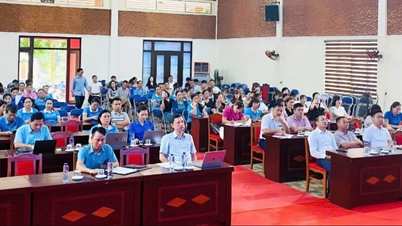








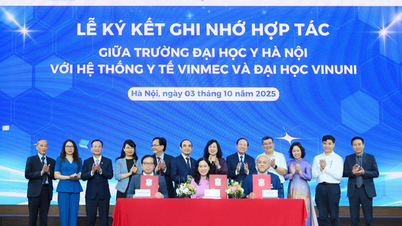










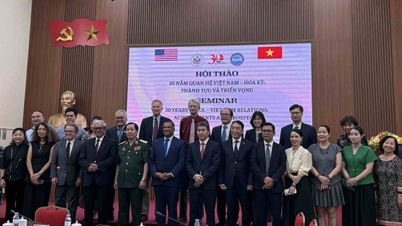
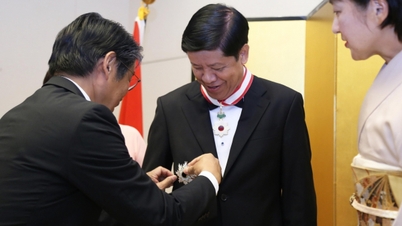























































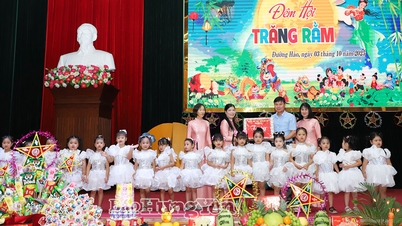












Comment (0)